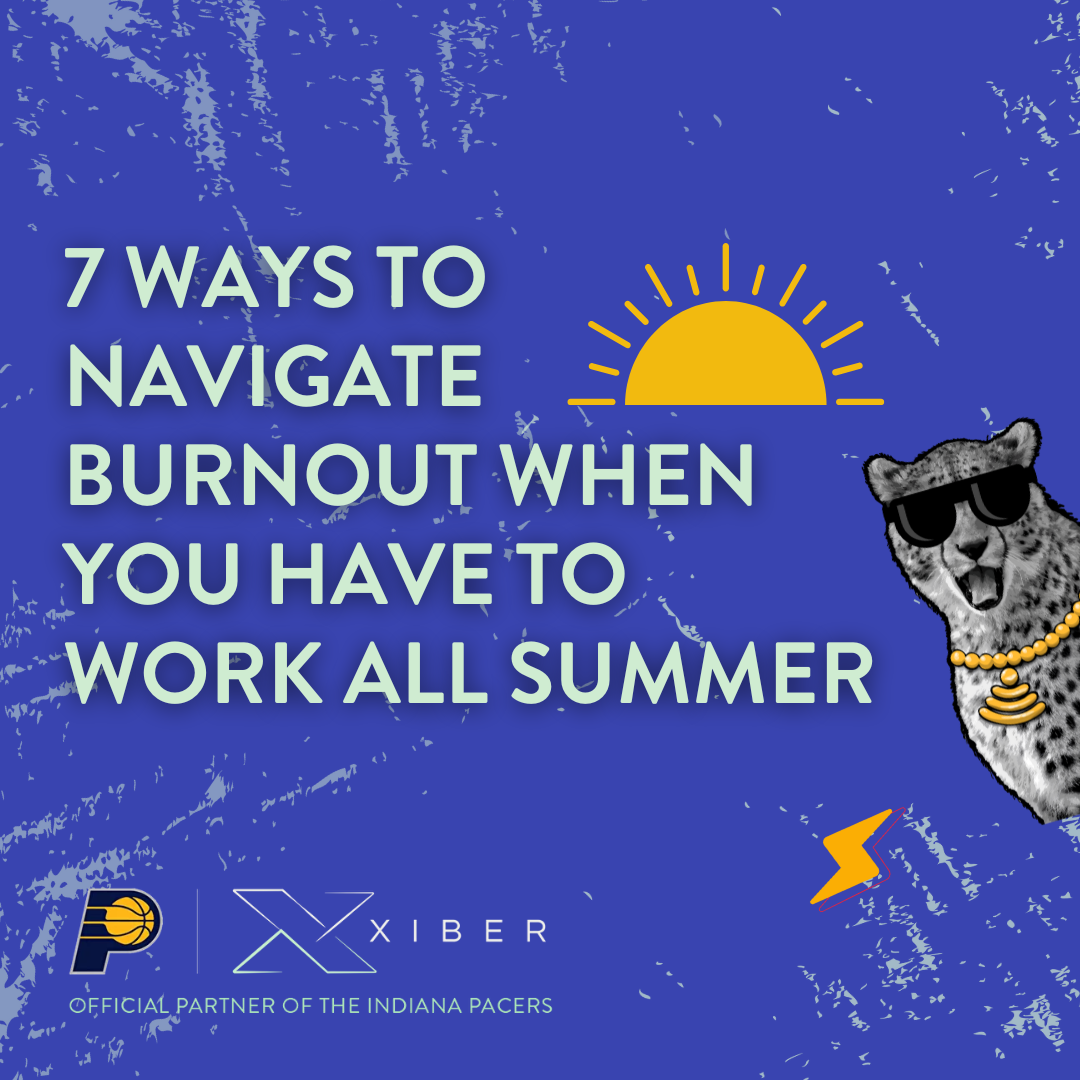Summer often evokes images of relaxation, vacations, and sunny days spent unwinding. But for many, the reality is grinding through work without a break, which can lead to burnout. If you're facing a summer packed with work, here are practical strategies to manage stress, maintain energy, and avoid burnout.
Understanding Burnout
Burnout is more than just feeling tired—it's a state of emotional, physical, and mental exhaustion caused by prolonged stress. Symptoms include irritability, lack of motivation, difficulty focusing, and even physical issues like headaches or fatigue. Working through the summer, when others seem to be on holiday, can amplify these feelings, making it critical to take proactive steps.
Strategies to Combat Burnout

1. Set Boundaries
Define clear work-life boundaries, even if your schedule is demanding. Set specific work hours and stick to them. Communicate these boundaries to colleagues or clients to manage expectations. For example, avoid answering emails after 6PM or reserve weekends for personal time.
2. Take Micro-Breaks
Short, intentional breaks can recharge you without derailing your workflow. Try the Pomodoro technique: work for 25 minutes, then take a 5-minute break to stretch, hydrate, or step outside. Even a brief walk can boost your mood and productivity.
3. Prioritize Self-Care
Self-care isn’t a luxury—it’s a necessity. Ensure you’re getting enough sleep (7-8 hours nightly), eating nutritious meals, and staying active. Even a 10-minute workout or a quick meditation session can reduce stress. Apps like Calm or Headspace can guide you through mindfulness exercises tailored for busy schedules.
4. Create Mini-Escapes
If a full vacation isn’t possible, plan mini-escapes to mimic that summer vibe. Spend an evening at a local park, have a picnic, or explore a nearby café on your day off. These small outings can provide a mental reset without requiring much time.
5. Stay Connected
Isolation can worsen burnout. Stay connected with friends, family, or coworkers for support. Schedule virtual coffee chats or quick catch-ups to maintain a sense of community. Sharing your experiences can lighten the emotional load.
6. Reevaluate Your Workload
If work feels overwhelming, assess your tasks. Can anything be delegated or postponed? Talk to your manager about prioritizing high-impact projects or redistributing responsibilities. Being honest about your capacity can prevent burnout before it spirals.
7. Find Meaning in Your Work
Burnout often stems from feeling disconnected from purpose. Reflect on how your work contributes to your goals or others’ lives. If your job feels monotonous, try setting small, achievable milestones to regain a sense of accomplishment.
Define clear work-life boundaries, even if your schedule is demanding. Set specific work hours and stick to them. Communicate these boundaries to colleagues or clients to manage expectations. For example, avoid answering emails after 6PM or reserve weekends for personal time.
2. Take Micro-Breaks
Short, intentional breaks can recharge you without derailing your workflow. Try the Pomodoro technique: work for 25 minutes, then take a 5-minute break to stretch, hydrate, or step outside. Even a brief walk can boost your mood and productivity.
3. Prioritize Self-Care
Self-care isn’t a luxury—it’s a necessity. Ensure you’re getting enough sleep (7-8 hours nightly), eating nutritious meals, and staying active. Even a 10-minute workout or a quick meditation session can reduce stress. Apps like Calm or Headspace can guide you through mindfulness exercises tailored for busy schedules.
4. Create Mini-Escapes
If a full vacation isn’t possible, plan mini-escapes to mimic that summer vibe. Spend an evening at a local park, have a picnic, or explore a nearby café on your day off. These small outings can provide a mental reset without requiring much time.
5. Stay Connected
Isolation can worsen burnout. Stay connected with friends, family, or coworkers for support. Schedule virtual coffee chats or quick catch-ups to maintain a sense of community. Sharing your experiences can lighten the emotional load.
6. Reevaluate Your Workload
If work feels overwhelming, assess your tasks. Can anything be delegated or postponed? Talk to your manager about prioritizing high-impact projects or redistributing responsibilities. Being honest about your capacity can prevent burnout before it spirals.
7. Find Meaning in Your Work
Burnout often stems from feeling disconnected from purpose. Reflect on how your work contributes to your goals or others’ lives. If your job feels monotonous, try setting small, achievable milestones to regain a sense of accomplishment.
When to Seek Help
If burnout symptoms persist, consider professional support. A therapist or counselor can offer tailored strategies to cope. Many workplaces also provide Employee Assistance Programs (EAPs) for free or low-cost mental health resources.
Final Thoughts
Working through the summer doesn’t have to mean burning out. By setting boundaries, prioritizing self-care, and finding small ways to recharge, you can stay resilient.
This blog post is brought to you by Xiber Simply Likable Internet.
This blog post is brought to you by Xiber Simply Likable Internet.






